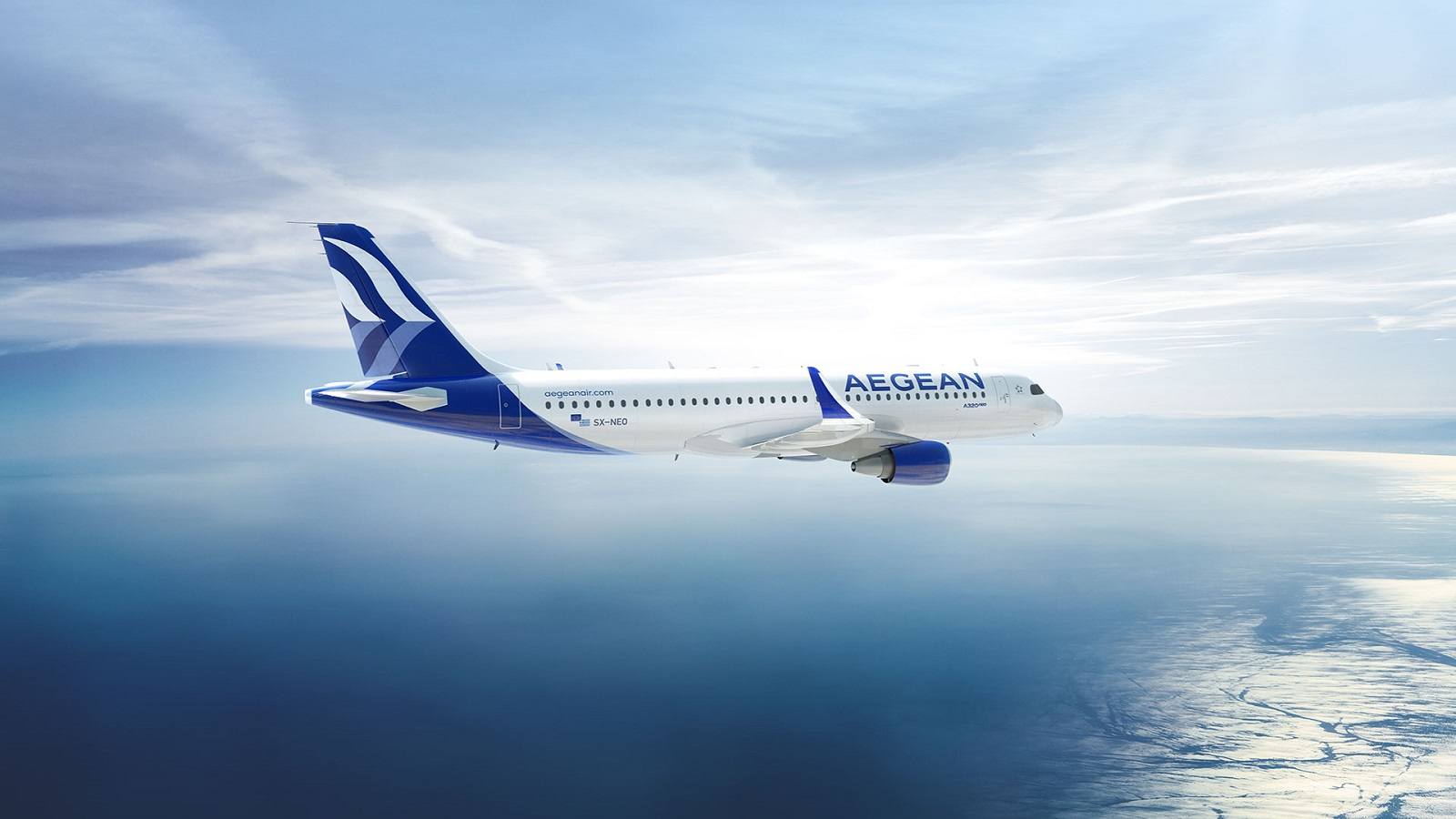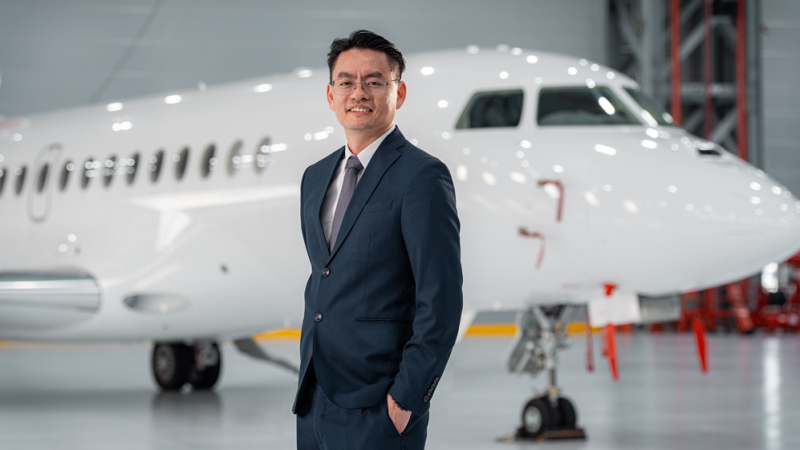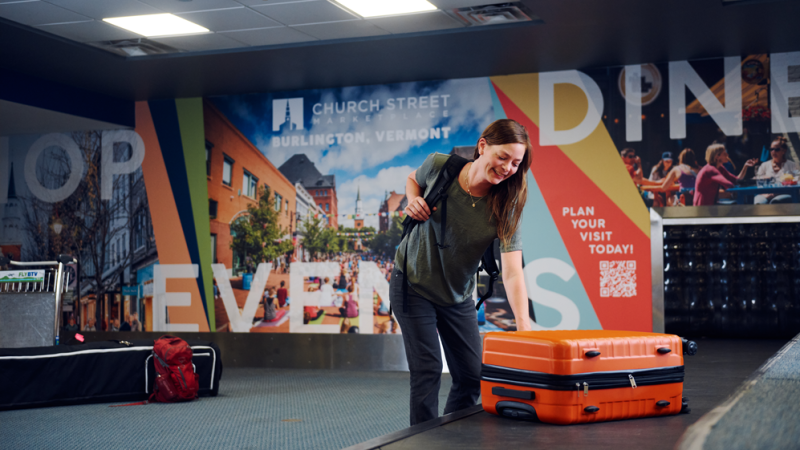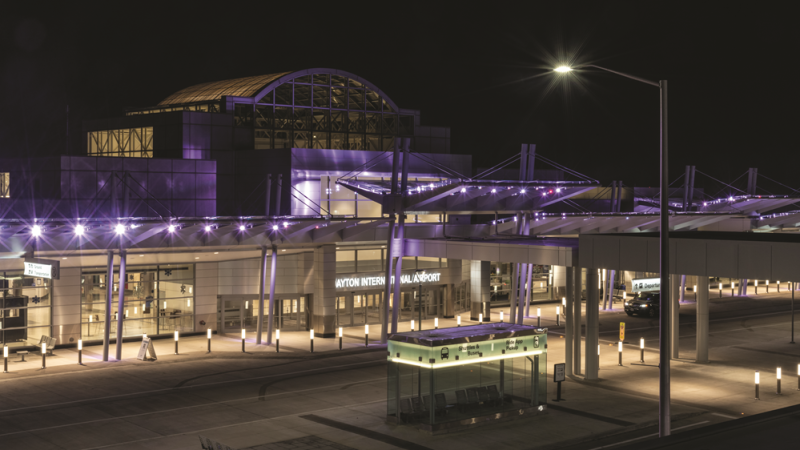AEGEAN went into business in 1999, as a Greek start-up airline company, a domestic carrier with only two aircraft, although that number eventually grew to 76 planes. Of course, those 24 years have been eventful for the aviation industry.
“Not long after we launched we saw 9/11, which was a major disruption for air travel. Six-to-seven years later we hit the financial crisis,” recalls Jaggi Roland, Chief Commercial Officer of AEGEAN. “Then we had the Greek crisis in 2009, which lasted until 2017 and saw the country lose 28% of its GDP. That was the biggest loss of GDP in Europe after the Second World War. We have seen lots of challenges, and the biggest of those was the pandemic.”
Yet in the wake of the pandemic, AEGEAN has published solid financial results, which Roland puts down not only to the airline’s own efforts but also those of Greece as a whole.
“It’s fair to say we posted a top result for the industry for last year and we are happy with the resilience we have built up over the years,” Roland tells us.
Over the years AEGEAN has developed a culture of adjustability and agility. As Roland points out, “In 2015, when Greece had the capital controls introduced, we told our people that ‘long-term planning’ means two weeks from now. We have learned over the years what it means to run an airline in crisis.”
 Despite the crises AEGEAN has encountered, the company has grown to serve international routes ever since we acquired Air Greece (1999) and later we merged with Cronus (2001). It has gone on to acquire Olympic Air after it was privatised and become a member of the prestigious Star Alliance. From 2006 onwards the company expanded its international network. This year AEGEAN will offer more than 18 million seats, serving an estimated 15 million passengers, operating from ten bases across Greece and across 46 countries, running 272 routes with its fleet of 76 planes, including 61 A320 jets and 15 airbuses.
Despite the crises AEGEAN has encountered, the company has grown to serve international routes ever since we acquired Air Greece (1999) and later we merged with Cronus (2001). It has gone on to acquire Olympic Air after it was privatised and become a member of the prestigious Star Alliance. From 2006 onwards the company expanded its international network. This year AEGEAN will offer more than 18 million seats, serving an estimated 15 million passengers, operating from ten bases across Greece and across 46 countries, running 272 routes with its fleet of 76 planes, including 61 A320 jets and 15 airbuses.
AEGEAN’s ability to adapt to rapidly changing circumstances can have its drawbacks, as Roland points out.
“Flexibility has a cost,” Roland says. “But it is part of our set-up, it is a mindset and culture.”
Opening up the Air
It is a culture that has yielded results.
“Our ability to come out of the pandemic faster than others, with strong results, is due to that approach, and our people’s ability to carry it out,” Roland tells us.
AEGEAN provides the largest network from and to Greece, making it unique among European airlines. However, it also works to differentiate itself in the quality of its service and hospitality.
“If you are travelling to Greece for a holiday, the holiday starts when your board the aircraft,” Roland says. “We still provide food and beverages free of charge on all our flights. It goes with hospitality. We treat our passengers.”
That treatment will continue to improve, as AEGEAN has invested in three new state-of-the-art lounges, two at the Athens Airport (intra and extra Segken), one at Thessaloniki and installing WiFi in all its new planes.
That hospitality was a priority as air travel opened up after the pandemic, alongside a strategic approach. When markets were opening, AEGEAN looked at which markets were opening fastest as it decided where to put capacity. Roland also gives credit to the careful planning of the Greek government.
“It is fair to say that the management of the Greek government throughout the crisis has helped,” Roland says. “Greece has been slower than other countries, but it announced the steps and implemented the steps. It was plannable for the travellers. The country has developed trust that what was announced was going to happen. That has helped Greece as a destination. That is one reason why in 2022 Greece is the only country to have fully recovered air traffic movements versus 2019.”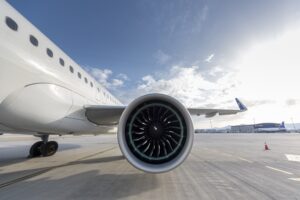
Roland also puts the airline’s success post-Covid down to the public’s appetite for travel.
“There was a period with zero travel. Once airlines were open, passengers were back. The crisis has shown that travelling by plane is here to stay and the outlook looks good,” Roland says. “What we have seen with the pandemic is that people want to travel.”
But while the outlook is positive, Roland still insists on adhering to the airline’s doctrine of flexibility and preparedness.
“We all have challenges, and as an industry overall we must improve by making travelling a good experience for passengers,” he says. “We face fewer challenges than some European countries, but my point is it remains volatile, and what looks good today may change fast.”
Nurturing Talent
Part of that preparedness means employing the right people and investing in the next generation of talent, and in doing that Roland will accept only the highest standards, particularly in the cockpit.
“We make no compromises, and we never will. As a growing airline that brings challenges, but it is in our DNA,” he says.
In 2018 the airline launched a scholarship program for young aviation enthusiasts. It helped young pilots financially to get their pilot licence so that AEGEAN could hire them as co-pilots and watch them grow, first in the co-pilot’s seat, and then in the pilot’s seat.
“That program was very successful we haven’t stopped it during the pandemic. Of the hundred who joined, 90 are now in the company,” Roland says. “We relaunched the scheme last year, offering 40 scholarships per year over three years, training 120 pilots to get their licence. Moreover, AEGEAN is currently running a scholarship program for 40 aircraft engineers.”
To complement that, AEGEAN has announced the construction of an MRO (maintenance, repair, and overhaul) here in Athens. The facility will also be home to a new training flight centre, with up to 7 simulators. Training and MRO facilities alike will be the first of their kind in Greece.
“We already do between 80 and 90% of our MRO ourselves and we want to get that to 100%, then provide it to third parties,” Roland tells us. “We also have an ongoing need for training for pilots and camping crew. At the moment we send them for training abroad. We want training for our own needs, and for other airlines also.”
The facility is part of AEGEAN’s overall strategy, growing its network, its fleet, and its overall capacity. And for all Roland says about long-term planning being two weeks away, the airline is already investing much further ahead into the future.
“We have started using sustainable aviation fuel for our international flights,” he says. “We are investing on the fleet side, replacing planes and overall, we have achieved a reduction of 9% per ASK in CO2 emissions versus 2019.”
